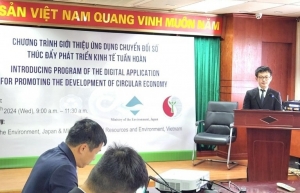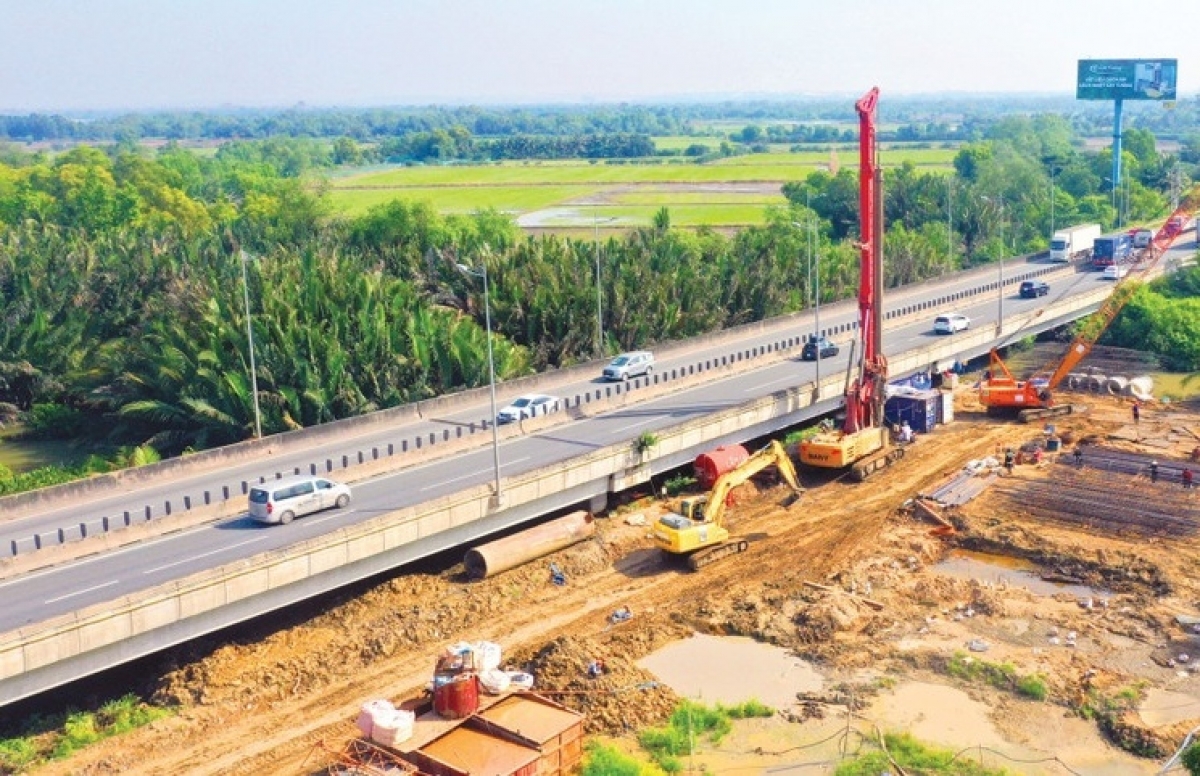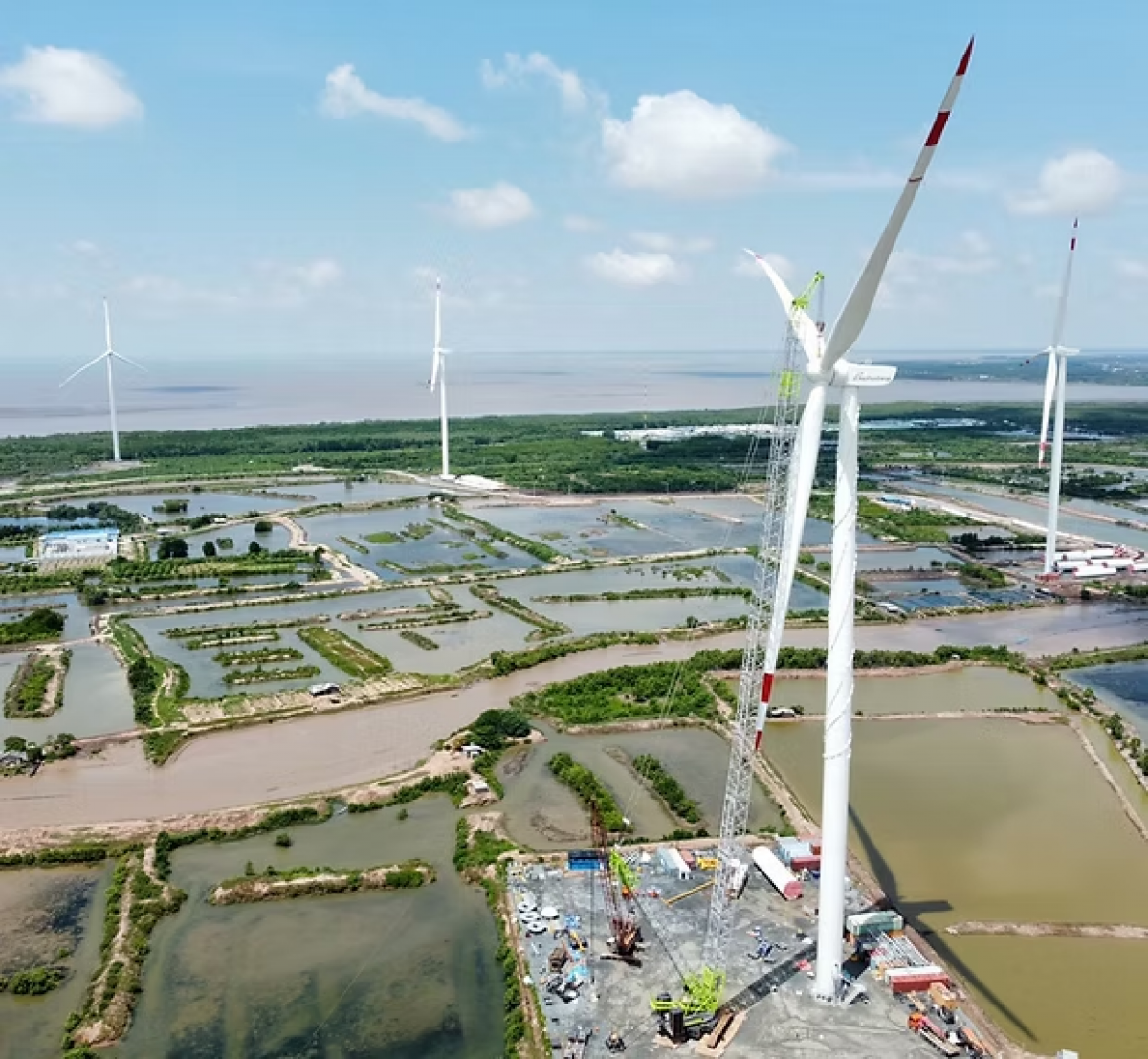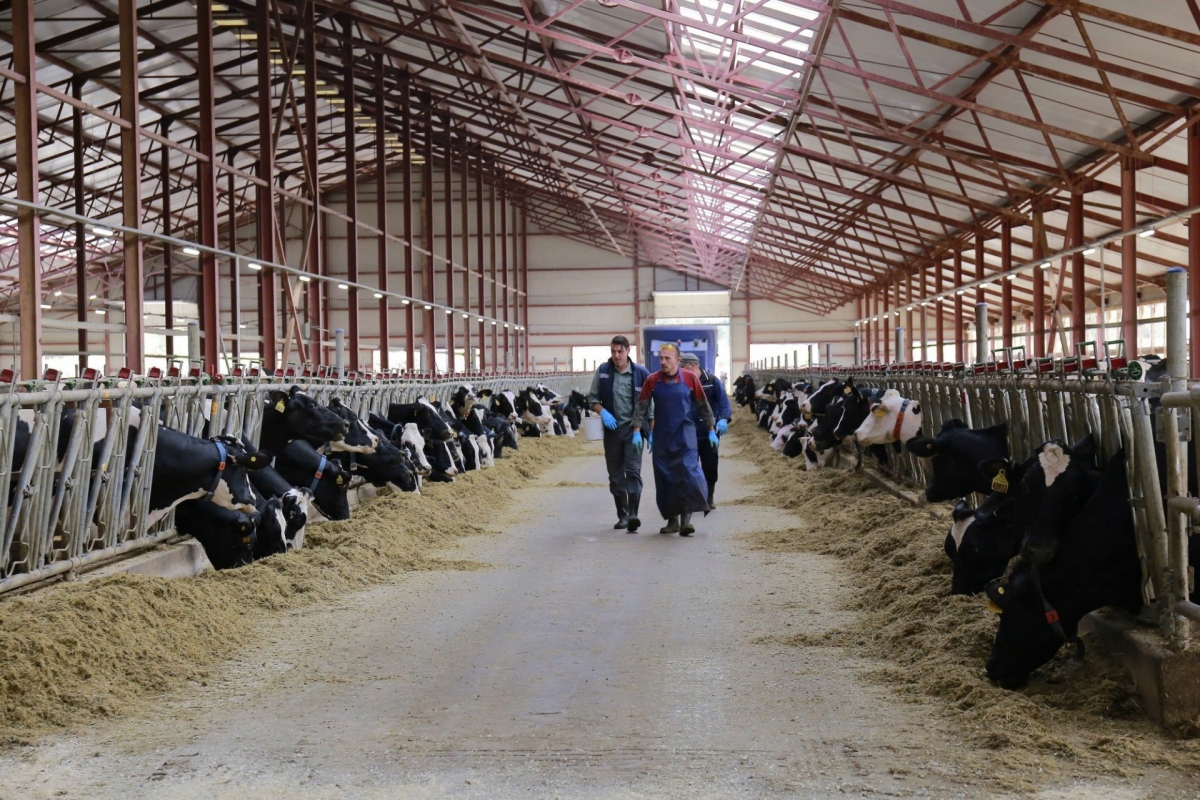INTERNATIONAL INVESTMENT
AND PORTAL
 Nguyen Thi Huong, director general of GSO
Nguyen Thi Huong, director general of GSO
Compared to other countries, Vietnam’s proportion of the digital economy is similar to that of Thailand, significantly lower compared to Malaysia and Singapore, yet still higher than several major countries such as the United States, Canada or Australia.
That is due to the different scale in digital economy measurements these countries have applied.
Vietnam measures digital economy proportion following recommendations and guidelines from the Organization for Economic Co-operation Development (OECD) and Asian Development Bank (ADB).
In fact, the proportion of the digital economy of Vietnam’s GDP has tended to fall in recent years, from 12.87 per cent in 2021, receding to 12.63 per cent in 2022, and an estimated 12.33 per cent in 2023.
Digital economy engagement efforts across all fields and segments of the economy and localities are being strongly promoted.
This is similar to Thailand who saw their proportion falling from 12.66 per cent in 2021 to 12.1 per cent in 2022, as well as that of several other economies who have been using the measurement process under OECD and ADB recommendations.
The 13th Party Congress has set forth the target of having the digital economy make up 50 per cent of GDP by 2025. What’s your view on this target?Under GSO measurements, the proportion of the digital economy on GDP is estimated at 12.33 per cent. To reach the set goal, this year the digital economy needs to grow by an additional more than 30 per cent, and in 2025 be soaring to over 50 per cent. This is a challenging task.
It is inspiring that under GSO observation, the digital economy engagement efforts across all fields and segments of the economy and localities are being strongly promoted, including in production, distribution, and farming.
This reflects the commitment of the government, particularly the prime minister, management agencies, localities, the business community and people in pushing IT applications into production, trading, service provision and management, contributing to driving national digital transformation.
The digital economy proportion on regional GDP of Bac Ninh, Thai Nguyen and Bac Giang provinces lead in the country, but not major development centres like Hanoi, Ho Chi Minh City, or Binh Duong. Why is this?Based on calculation results, during 2020-2023 there are 10 localities having the added value proportion of the digital economy where the regional GDP is higher than the country’s average, in which Bac Ninh, Thai Nguyen, Bac Giang and Vinh Phuc take the lead; following by Haiphong, Hanoi, Ho Chi Minh City, Danang and Ha Nam.
These results are totally precise when looking at foreign direct investment inflow into these localities in the recent years.
This high proportion of the top four localities was mainly driven by the contribution of the core digital economy in these localities, particularly the electronics, computer and optic products manufacturing industries from the foreign direct investment sector.
For instance, in 2023, the core digital economy accounted for 87-96 per cent of the total added value of the digital economy in these top 4 localities, meanwhile the core digital economy makes up 68 per cent of Hanoi’s economy value and the figure for Ho Chi Minh City was just 66 per cent.
This fits the economic development direction of the Party, with major development centres like Hanoi, Ho Chi Minh City and Danang focusing on spurring services development, particularly highly added value services like finance and banking, insurance or tourism, whereas manufacturing is shifted to other localities.
 IBM: Five top trends for 2024 to enhance Vietnam's digital economy
IBM: Five top trends for 2024 to enhance Vietnam's digital economy
Designing around AI, AI usage, data conversation, operating models, and ecosystem building will be the five main tech trends in 2024, IBM Vietnam pointed out at a press conference on December 12.
 The 2024 vision for digital application, digital productivity, and digital growth
The 2024 vision for digital application, digital productivity, and digital growth
Vietnam’s digital technology industry has made encouraging steps of development and maturity over the years.
 Digital transformation to drive circular economy
Digital transformation to drive circular economy
A programme focussing on digital applications for visualising material cycles and resource efficiency and their role in advancing the circular economy in Vietnam was held on January 24 in Hanoi. It was led by the Resource and Environment Communication Center (RECC) in partnership with Japan's Environmental Renewal and Material Circulation Bureau.


















